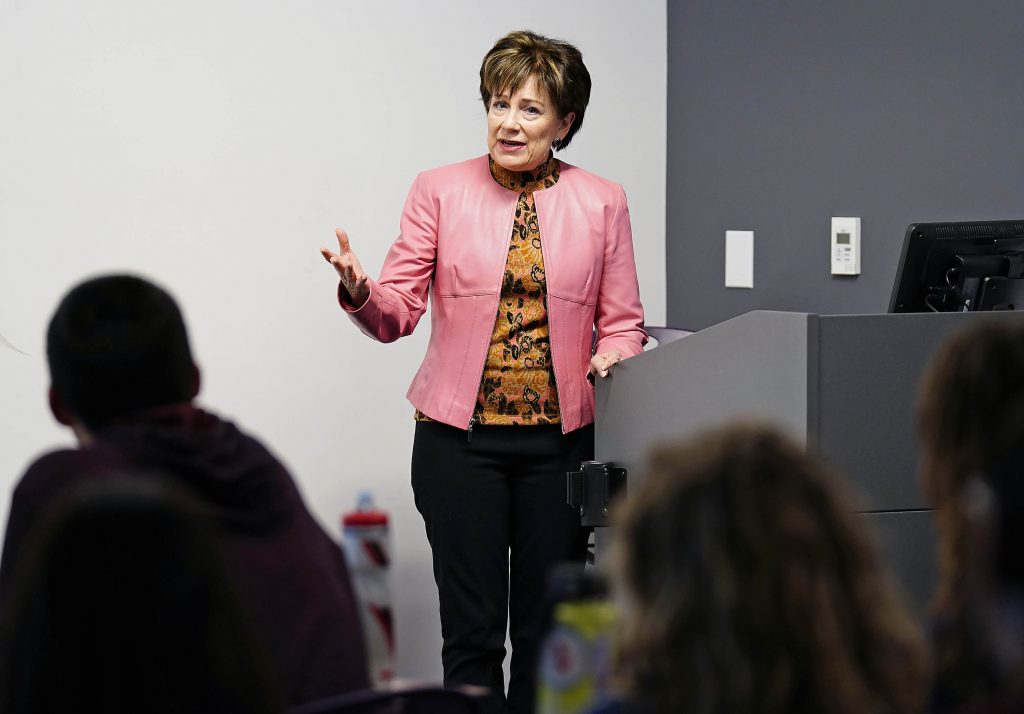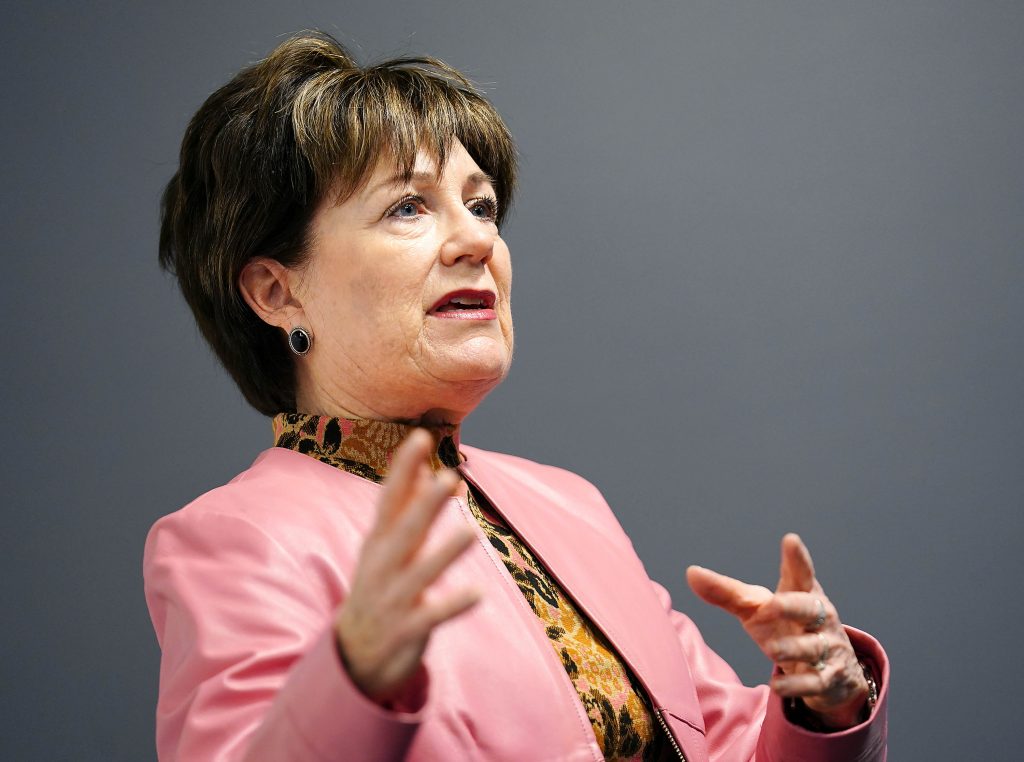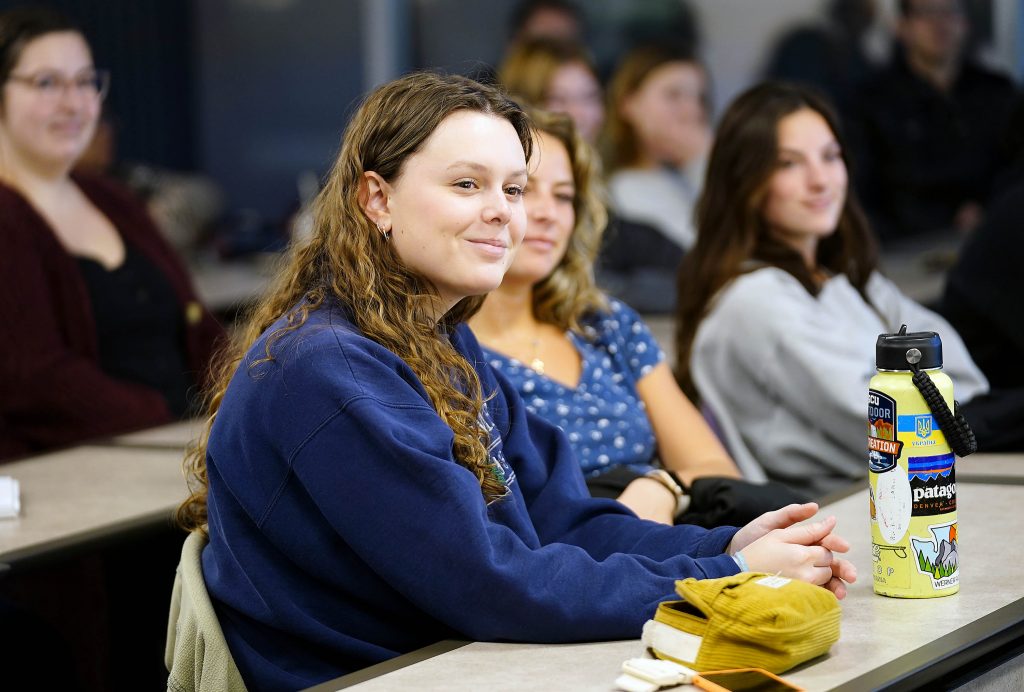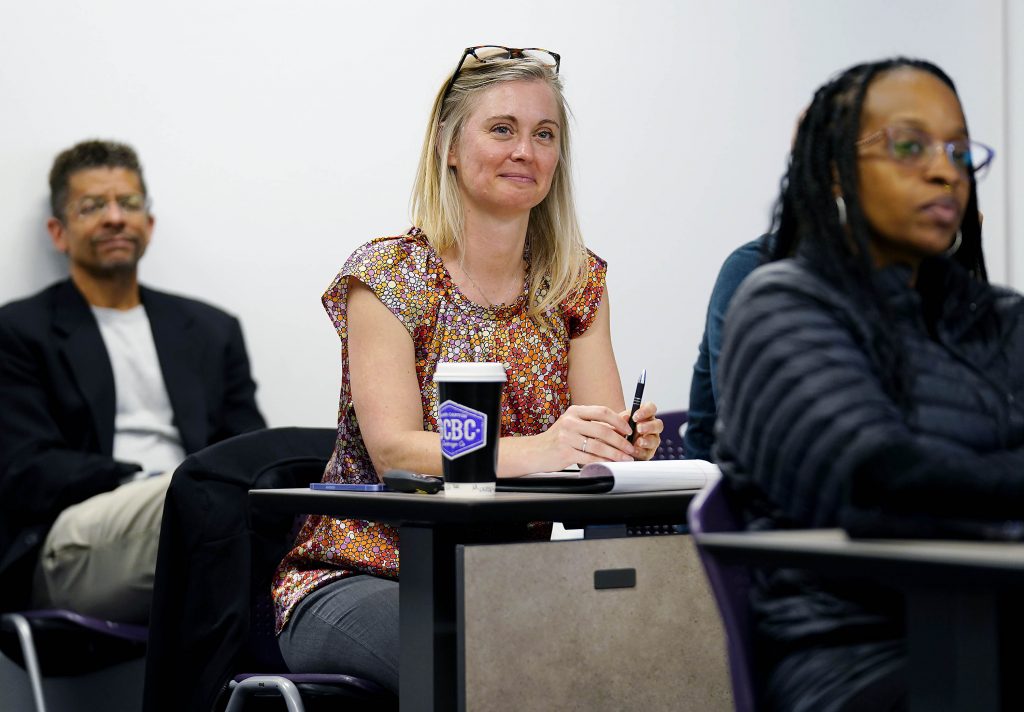
Photos by Ralph Freso
Social work students at Grand Canyon University got the good news and bad news about advocating for the behavioral health system on Tuesday night from a politician who spent a lot of time since 2007 in the Arizona Legislature examining policy.
The good news: Their individual advocacy can make a difference, even beyond industry lobbyists.
“One thing I would say is make sure they hear your voice,” said former Arizona Sen. Nancy Barto, a Republican who served as chair of the Health and Human Services committee before her November election defeat in District 4.
“Do your own research, get to know your own legislator. Get on their email list. You can advocate and can be your own lobbyist. Find out what they are about. What are they really doing for you as a social worker?”

The bad news: The behavioral health system is “a mess,” she said, and reform is difficult.
“The interesting thing, in the HHS space — and I’m going to get gritty here — it’s kind of a liberal terrain,” she said. “So running a lot of these reform bills, it’s surprising more of my colleagues on the other side of the aisle weren’t proposing them. It showed me a lot in one sense. There is a lot of conflict of interest in the capitol in a lot of spaces, and health and human services is a prime example.”
Those issues weren’t reserved for one party.
“What I really grew in is the courage to stand up to my own party, and whether it was (Republican governors) Jan Brewer or Doug Ducey, I ran into the same things — they are all just protecting their agencies and did not want to admit failure,” she said.
“When you have entrenched interests that make a lot of money ... We know it’s happening in Washington but it’s happening here. To admit your state is in shambles and it's hurting people, it really is hard as a Christian. I’m not just pro-life for those in the womb, I’m pro-life for everybody.”
Barto laid out those challenges to change in a campus classroom of students that included both graduate and undergraduates in social work, one of GCU’s fastest growing academic programs, growing from a handful to nearly 1,400 in less than four years.
“These are social workers and are comfortable working with individuals yet will have an ethical responsibility to work on a macro level in organizations, communities and for policy change to advocate for the oppressed and vulnerable populations,” said Makisha Gunty, Sociology and Social Work Department Chair.

Barto said her main issue was trying to help the chronic seriously mentally ill.
“My brother had severe schizophrenia. He was murdered at the age of 40 as a homeless man — a long time ago. But I really didn’t learn about the brokenness of the system until I was in the legislature,” she said. “Families going through it and those on the high-need spectrum are really being underserved.”
Barto said afterward that her brother often disappeared for years, and her parents didn’t know what to do about it. “There was no real behavioral health system then, but I look now and wonder if he would even get the help now. It’s still so broken.”
As the system shifted toward deinstitutionalization, it left gaps in care that haven’t been filled, she said. “You can’t just throw someone out of a group home and expect them to stay on their meds.”

Although she is newly out of office, Barto said she still works to educate legislators on the issues that occupied so much of her time, using faith as her guide.
“I think it is truly God’s heart. Confront injustice and confront what is wrong and do things that can right it,” she said.
One way: “We have to start shifting our resources away from corrections and the justice system to where it belongs, to take care of our very complex-needs individuals.”
Graduate student Kirsten Mack said that after hearing Barto, she was inspired to learn who represents her Phoenix district and ask about the legislator’s positions.
“So many people are like, ‘Oh I want to be a therapist.’ But we need people out there advocating for people to make a difference and do things to make it right.”
Grand Canyon University senior writer Mike Kilen can be reached at [email protected] or at 602-639-6764.
***
Related content:
GCU News: Advocacy and counseling go hand in hand



































































